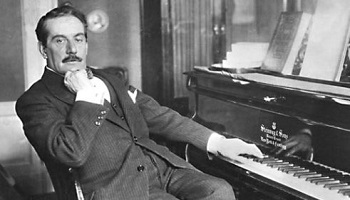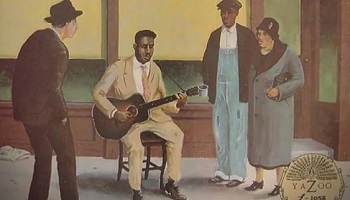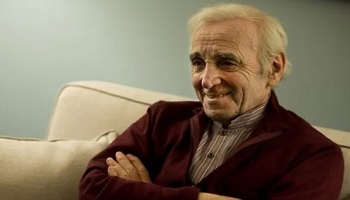
Giacomo Puccini Net Worth The Wealth Behind Opera Masterpieces
Giacomo Puccini is a name that stands as a cornerstone in the world of opera. Renowned for his emotionally charged compositions and unforgettable melodies, Puccini’s works have transcended time, continuing to captivate audiences worldwide. But alongside his immense artistic achievements, questions often arise about the financial side of his legacy. What was Giacomo Puccini’s net worth, and how did his career shape his wealth? In this article, we’ll explore the life, career, and financial legacy of one of the greatest composers in history.
Early Life and Struggles
Giacomo Puccini was born on December 22, 1858, in Lucca, Italy, into a family of musicians. His lineage included church organists and composers, setting the stage for his own musical journey. However, his early life was marked by financial hardships. After his father’s death in 1864, the family struggled to make ends meet.
Despite these challenges, Puccini’s passion for music was evident. He attended the Milan Conservatory, supported in part by a relative’s financial help. During his time at the conservatory, he honed his craft, setting the foundation for his later success.
The Rise to Fame
Puccini’s first opera, Le Villi (1884), marked the beginning of his professional career. Although it was not an immediate commercial success, it gained the attention of publisher Giulio Ricordi, who would become a pivotal figure in Puccini’s career. With Ricordi’s support, Puccini composed a series of operas that brought him critical acclaim and financial success.
Breakthrough Works
- Manon Lescaut (1893): This opera established Puccini as a leading composer of his time. It was a commercial triumph, signaling the beginning of his lucrative career.
- La Bohème (1896): One of his most beloved operas, La Bohème quickly became a worldwide success. Its universal themes of love and loss resonated with audiences, generating significant income for Puccini.
- Tosca (1900): A dramatic and intense opera, Tosca solidified Puccini’s reputation and became a staple of the operatic repertoire.
- Madama Butterfly (1904): Although its premiere was a failure, a revised version became one of Puccini’s greatest successes, earning him substantial royalties.
- Turandot (1926): Puccini’s final opera, left incomplete at his death, features the iconic aria Nessun Dorma. The opera’s success added to his posthumous financial legacy.
Sources of Wealth
Puccini’s net worth was primarily built through his operatic compositions, but he also had other income streams. Let’s break down the sources of his wealth:
1. Opera Royalties
Opera was the mainstay of Puccini’s income. His works were performed in major opera houses worldwide, earning him royalties from ticket sales and sheet music publication. The popularity of his operas ensured a steady income throughout his life.
2. Publishing Deals
Puccini’s partnership with Giulio Ricordi’s publishing house was financially rewarding. Ricordi not only supported the production of Puccini’s operas but also ensured that they were widely published and performed, maximizing their commercial potential.
3. Investments
As Puccini’s career flourished, he invested in real estate. He purchased a villa in Torre del Lago, where he composed many of his masterpieces. This property became an iconic landmark and contributed to his financial portfolio.
4. Posthumous Earnings
Puccini’s works have continued to generate income long after his death. Through royalties, performances, and adaptations, his estate has remained financially robust, benefiting his descendants.
Estimated Net Worth
While it’s difficult to calculate Puccini’s exact net worth in modern terms, historical records suggest he was among the wealthiest composers of his time. By the time of his death in 1924, Puccini’s fortune was estimated to be equivalent to several million dollars in today’s value.
Lifestyle and Expenditures
Puccini’s wealth enabled him to enjoy a luxurious lifestyle. He was known for his love of fast cars, elegant clothing, and fine dining. However, his lifestyle also had its share of controversies and challenges.
Torre del Lago Villa
Puccini’s villa in Torre del Lago was more than just a residence; it was his creative sanctuary. The serene environment inspired many of his works, and the villa’s upkeep reflected his affluence.
Scandals and Legal Issues
Puccini’s personal life was marked by scandals, including a highly publicized affair and a legal battle following the tragic death of his maid, Doria Manfredi. These controversies, while damaging to his reputation, had minimal impact on his financial standing.
Legacy and Posthumous Impact
Giacomo Puccini’s influence extends far beyond his lifetime. His operas continue to be among the most performed in the world, ensuring a steady stream of income for his estate. Modern adaptations, film soundtracks, and commercial uses of his music, such as Nessun Dorma in major events, have further solidified his financial and cultural legacy.
Global Reach
Puccini’s operas have been translated into numerous languages and performed in countries worldwide, from Italy to the United States, Japan, and beyond. This global appeal has kept his works relevant and profitable.
Cultural Significance
The themes in Puccini’s operas—love, passion, sacrifice, and tragedy—are timeless. This universality ensures that his works resonate with audiences across generations, contributing to their enduring popularity.
Comparison with Contemporaries
During his lifetime, Puccini was often compared to other composers such as Giuseppe Verdi and Richard Wagner. While Verdi and Wagner were celebrated for their monumental contributions, Puccini carved out a niche with his focus on human emotions and relatable narratives. Financially, Puccini’s success rivaled that of his contemporaries, thanks to his strategic partnerships and the commercial appeal of his music.
Giacomo Puccini’s net worth and financial legacy are a reflection of his extraordinary talent and enduring appeal. From his humble beginnings in Lucca to becoming one of the wealthiest and most celebrated composers in history, Puccini’s journey is a testament to the power of passion, perseverance, and creativity. His works continue to touch hearts and generate wealth, ensuring that the name Puccini remains synonymous with operatic brilliance.
As we listen to La Bohème, Tosca, or Madama Butterfly, we’re reminded that Puccini’s true wealth lies not just in his monetary achievements but in the timeless beauty of his music, which will resonate for generations to come.



